If you ask a French person if they are going to demonstrate - a commonplace act in any democracy - it is not uncommon for them to reply that they prefer not to take any risks, so virulent has the policing of demonstrations become.
In 2018, at the time of the Gilets Jaunes, many European journalists asked me about the behaviour of the French police and discovered a different face of Emmanuel Macron, but also of the European Commission, which has been particularly benevolent with the French government. Imagine the outcry if, in Poland, demonstrations had been banned, people had been arrested simply for wearing a yellow T-shirt, more than 200,000 flash-balls and LBD grenades had been fired at demonstrators, more than 15,000 people had been arrested, more than 2,000 injured, more than 350 hit in the head and around thirty blinded in one eye. Just one of these incidents would have triggered a chain of condemnations from the European Parliament, the Commissioners, NGOs and the media.
It's true that the Gilets Jaunes belonged to the peripheral France that the elites loathe. Just imagine - they were challenging the main dogmas of the progressive powers that be. First of all, they were taxing lifestyles that were supposedly responsible for global warming, but in fact were more in opposition to the increasingly collectivist way of life in cities, imposed by the galloping urbanisation. Secondly, they questioned the sound management of public funds by Emmanuel Macron, considered at the time to be the crème de la crème of progressive technocrats. France is the developed country with the highest tax rate in the world, but all French people have the impression that they are paying more and more for public services of less and less good quality. The question asked by each and every of the Gilets Jaunes was "But where is the money going?"
At first, the government and the mass media mocked their demands and suggested that the Gilets Jaunes lacked the skills and abilities to understand how government policy was benefiting them. Then came a third demand: a national debate on immigration. It was at this point that the movement began to be denigrated by the media and politicians, and that the police violence against this "peripheral France" began.
This movement, which was challenging the entire progressive ecosystem, was becoming too dangerous. We should remember that at the height of the movement’s activity the police and gendarmerie officers were obliged to inform Macron that they would refuse to fire on the crowd with lethal weapons. The police then received industrial quantities of "defensive" grenades, gas and 40 mm flash-balls. It was these repressions and the complicity of the mainstream media, which constantly denigrated the Gilets Jaunes to the rest of the population, that saved Emmanuel Macron and the whole progressive ecosystem. Without the police, the Gilets Jaunes would certainly have toppled the government.
Today, the situation is different. The images shown earlier this year of the violent charges and arrests by the French police against demonstrators opposing pension reform were questioned not only by the press on our continent, but also by the French mainstream media. They were concerned because on the streets there was no longer just peripheral France, but the militant hard core of the left-wing progressive ecosystem, the sectors funded by the state and supported by the public media: trade unionists, NGOs, left-wing political parties and the civil service.
Like with the Gilets Jaunes President Macron did everything he could to make the movement degenerate. This allowed him, by accusing the police, to impose himself as the only bulwark against the chaos he himself was creating. But this time he had all the progressive influencers and media against him. Then, in June, there were riots and looting. This will probably sound crazy to our European readers who don't live in France, but following those riots for the whole of July the government and the mainstream media did everything they could to avoid the subject of immigration. The main story in the French press about the looting in June was police violence. Reading the press, the riots seem to be their sole responsibility.
For their part, the police have launched a movement to express their frustration. It should be noted that the police officer who shot young Nahel is still on remand, because according to the courts his release could, among other things, "reactivate" new revolts in the suburbs. This seems totally surreal, especially when you consider that under French law police officers are authorised to fire on a vehicle "whose occupants are likely, in their flight, to cause injury to themselves or others". Nahel, a 17-year-old known to the police, was shot dead while driving a Mercedes-Benz A-Class (Type 177) at high speed in a bus lane, without a licence and without insurance. He had first escaped from the police, who had not drawn their weapons, and then a second time when the police threatened him with their weapons. So, from now on, in order to have the police officer convicted, it will be necessary to prove that he has shot to kill, knowing that Nahel was not going to cause any accidents - something that is impossible to prove and, above all, something that no popular jury will support. The best proof is the success of the Internet fundraising campaign launched to help the family of the police officer in custody, which has raised €1.6 million in 5 days.
But the straw that broke the camel's back was the "Hedi" affair. Hedi is a young man of 22 who, on 1 July, was shot in the head with an LBD, then allegedly beaten up by 4 police officers, leaving him to drown in his own blood. The young man was saved by doctors, who had to remove part of his skull, which disfigured him. It is not known why these 4 police officers would have attacked this young man, who has a job and for whom there is no evidence of any involvement in rioting or looting. The four police officers have been indicted, and one of them, like the police officer who shot Nahel, has been taken into custody. Colleagues first applauded the officer as he left the courthouse, then went on sick leave or burnout. This grassroots movement quickly spread throughout France. Seeing that it was becoming significant, the unions tried to channel it via the "562". This number refers to a procedural code meaning that police officers continue to provide a minimum service, but not serve in the field, except in emergencies. Then, the Director General of the National Police (DGPN), Frédéric Veaux, in an exceptional move, supported the police against the judges' decision, trying to channel the discontent into a demand: "Before a possible trial, a police officer has no place in prison". This statement immediately aroused the ire of the magistrates and the mainstream media, who called on the President of the Republic and the Ministers of the Interior and Justice to intervene in defence of judicial authority. Of course, Emmanuel Macron and his ministers, who know that their last line of defence is the police, refrained from condemning the remarks made by the senior civil servant, who had certainly intervened with their consent to calm the discontent. Better still, while social dialogue is far from being this government's strength, the Minister of the Interior has entered into the phase of cuddling with his troops and, despite the insistence of journalists, refuses to comment on the particular case of Hedi.
But we should not give a false image of the French police, who are respectful if you are respectful with them. They do their utmost to protect people and property in today’s France where insecurity has now reached new heights. Police officers are even targeted by delinquents and criminals. They are regularly attacked, on or off duty, simply because they are police officers. They are on the front line in managing the growing discontent of the population to whom progressive political leaders promised paradise on earth, but have produced only an increasingly divided, fragmented and fractured French society. The crises in France are getting more and more frequent: "Bonnets rouges", "Nuit debout", "Gilets jaunes", various and sundry strikes, blockades against the "trashing of the planet", Covid, demonstrations against pension reform, urban riots, etc. Above all, the government's policy of using law enforcement officers against social unrest movements can only lead to tragedy. It is not uncommon for police officers to work for more than 12 hours at a stretch with only a sandwich for lunch. Faced with demonstrators who never stop harassing them, after two or three days it is normal for some of them to break down, especially when this goes on for several weeks. And what's more, between two crises, we have to deal with insecurity in France, which is reaching mind-boggling levels, and with uncontrolled immigration. The government, for ideological reasons, refuses to limit immigration and is scared to death of really tackling insecurity. To do that, it would have to put a stop to immigration, allocate enormous resources (prison establishments, police and judicial recruitment, etc.), alienate the left-wing media, parties and NGOs that guarantee any progressive candidate a win in the presidential election against an anti-immigration candidate. Finally, if you really tackle crime, you're guaranteed to set fire to the housing estates where part of the population earn their living from trafficking for months on end. Under these conditions, you will understand that police violence in France cannot stop because it has become systemic.
Read also
Holiday debates on immigration with French 'papys boomers'.
Every year, like many of us, I spend the summer holidays with my family. It's a time for endless political discussions. As someone who enjoys adversarial debate, I must admit that I'm often provocative. I particularly enjoy sparking discussions on immigration with my elders, as our opinions differ so widely on this issue.



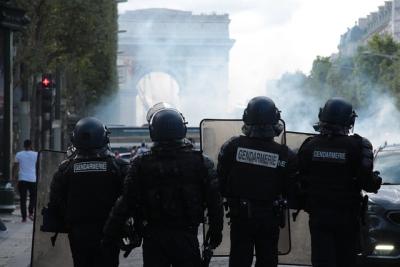

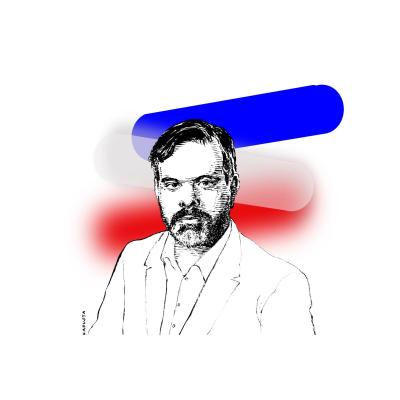
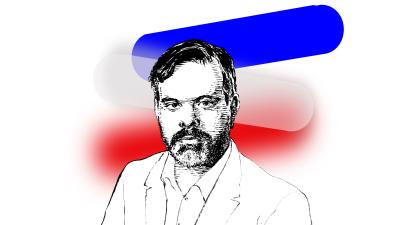

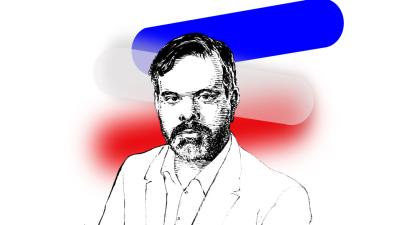

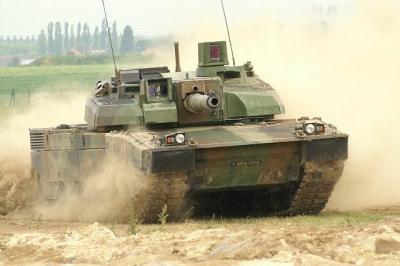

Comments (0)